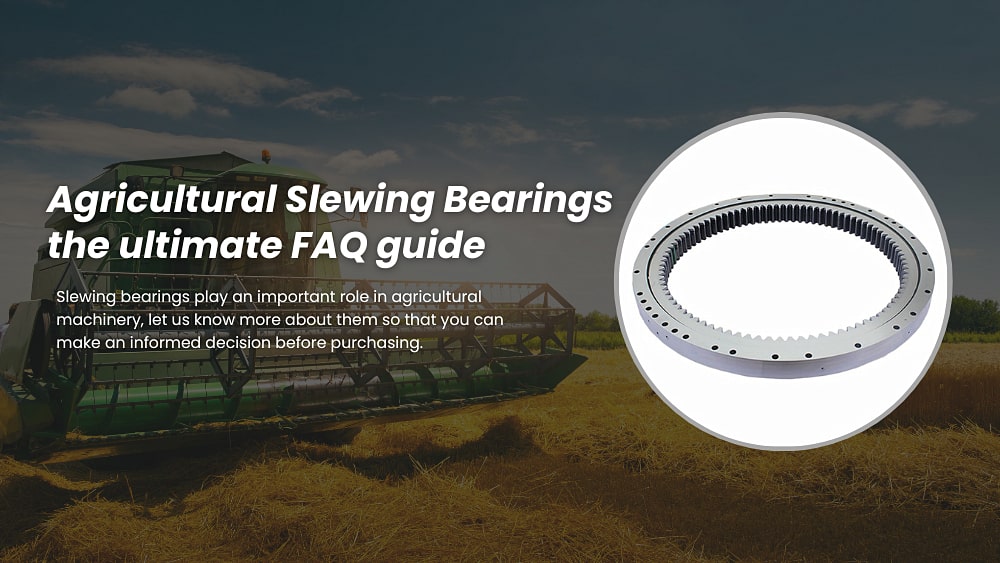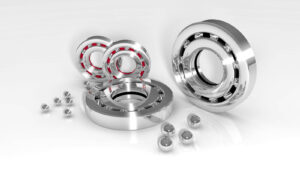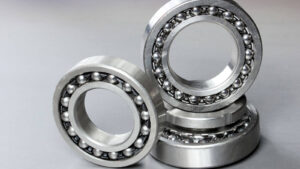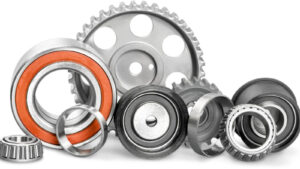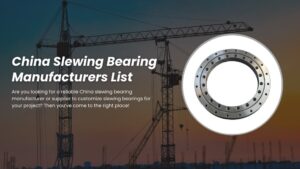Do you need a large number of agricultural slewing bearings for your production line? Slewing bearings play an important role in agricultural machinery, let us know more about them so that you can make an informed decision before purchasing.
Below is a list of questions and answers to help you learn more about agricultural slewing bearings.
You’ll learn about its features, benefits, troubleshooting procedures, and more.
let’s start:
What Is an Agricultural Slewing Bearing?
An agricultural slewing bearing, is a specialized type of bearing designed for use in agricultural machinery and equipment. Slewing bearings are large, ring-shaped components that facilitate the smooth rotation of heavy loads and allow for axial and radial movement. They are commonly used in applications where a machine or equipment component needs to pivot or swivel while supporting substantial weight.
What Are the Characteristics of Agricultural Slewing Bearings?
The following are the main features of agricultural slewing bearings.
- High load-bearing capacity: Agricultural slewing bearings can withstand large radial, axial, and even moment loads.
- Surface Protection and Corrosion Resistance: The materials and coatings used in these bearings are carefully selected to resist corrosion.
- Long service life: These bearings have a long service life, helping to increase the reliability and cost-effectiveness of agricultural equipment.
- Reduced Friction: Many agricultural slewing bearings are designed to minimize friction, improving energy efficiency and allowing for smoother operation.
- Durable Construction: These bearings are typically made from high-quality materials, including strong steel, to withstand the rigors of agricultural use.
What Is the Best Material for Agricultural Slewing Bearings?
The choice of material for agricultural slewing bearings depends on several factors, including the specific application, load capacity, environmental conditions, and budget. Common materials used for agricultural slewing bearings include:
Chrome-Molybdenum Steel: This is a commonly used material for agricultural slewing bearings. It offers good strength, durability, and resistance to wear. Chrome-molybdenum steel bearings can handle heavy loads and are suitable for many agricultural applications.
Carbon Steel: Carbon steel is another option for agricultural slewing bearings. It provides strength and is often a cost-effective choice. However, it may not be as corrosion-resistant as other materials.
Stainless Steel: Stainless steel is an excellent choice for agricultural slewing bearings when corrosion resistance is a significant concern. It is resistant to rust and can withstand exposure to moisture and corrosive substances.
Alloyed Steels: Various alloyed steels are used to enhance the material’s properties. Alloying can improve strength, fatigue resistance, and corrosion resistance. Specific alloying elements may include chromium, nickel, and molybdenum.
The selection of the best material depends on the specific needs of the application. Chrome-molybdenum steel is a versatile and commonly used material for agricultural slewing bearings because of its balance of strength and cost. Stainless steel is preferred in situations where corrosion resistance is crucial, such as in highly corrosive or wet environments. Ultimately, it’s essential to consider the load-bearing requirements, environmental conditions, and budget constraints when choosing the best material for agricultural slewing bearings.
What Are the Considerations When Buying Agricultural Slewing Bearings?
When buying agricultural slewing bearings, there are several important considerations to keep in mind to ensure you select the right bearing for your specific application. Here are key factors to consider:
Load Capacity: Determine the maximum load the slewing bearing will need to support in your agricultural equipment. Ensure the bearing’s load capacity meets or exceeds the demands of your application.
Size and Design: Choose the size and design of the slewing bearing that fits your equipment and its intended function. Ensure it’s a proper fit without being oversized or undersized.
Environmental Conditions: Consider the environmental factors your equipment will be exposed to. If it’s an outdoor application, select a bearing with corrosion resistance and weatherproof features.
Material: Choose the appropriate material for the bearing, considering factors like load-bearing capacity, corrosion resistance, and cost. Materials commonly used include chrome-molybdenum steel, stainless steel, and carbon steel.
Budget: Factor in your budget constraints. While it’s important to invest in a quality bearing, consider the cost and compare it with the features and benefits the bearing provides.
By carefully considering these factors, you can make an informed decision when buying agricultural slewing bearings and ensure they meet the specific requirements of your farming equipment and applications.
What Are the Common Problems with Agricultural Slewing Bearings? How to Solve?
Common problems with agricultural slewing bearings can include wear, misalignment, contamination, and lack of lubrication. Here’s how to identify and solve these issues:
Problem: Over time, agricultural slewing bearings can experience wear, resulting in increased clearance or play.
Solution: Measure the bearing clearance and compare it to the manufacturer’s specifications. If it exceeds acceptable limits, consider replacing the bearing.
Problem: Inadequate or improper lubrication can result in increased friction, overheating, and premature wear.
Solution: Check the manufacturer’s recommendations for lubrication type and intervals. Lubricate the bearing as per guidelines to reduce friction and maintain proper function.
Overheating:
Problem: Excessive play or deflection may indicate bearing wear or damage.
Solution: Measure and compare the play or deflection to the manufacturer’s specifications. If it exceeds acceptable limits, consider replacing the bearing.
Inadequate Seals or Gaskets:
Regular maintenance, inspections, and adherence to manufacturer guidelines are essential to prevent and address common problems with agricultural slewing bearings. If you encounter issues that you’re unable to resolve, consider consulting a professional technician or engineer for assistance.
What Are the Quality Standards for Agricultural Slewing Bearings?
Before purchasing agricultural slewing bearings, you need to understand that agricultural slewing bearings are of high quality through international quality standards.
This means you must ensure that your agricultural slewing bearings meet international quality standards.
Below are the main international quality standards that your agricultural slewing bearings must comply with.
- ISO standards
- ABMA standards
- AGMA standard
- BIFMA standard
- DIN standard
- ASTM standard
Why Import Agricultural Slewing Bearings from China?
China is one of the best places to have proven agricultural slewing bearing manufacturers.
You should consider importing agricultural slewing bearings from China for the following reasons.
· high quality
You will get a high-quality agricultural slewing bearing made of high-quality materials from China.
· low cost
The cost of high-quality agricultural slewing bearings is good for your pocket and properly guarantees your return on investment.
· Good customer service
You will receive appropriate assistance on how to handle your query through various customer service channels.
· Reliable transportation system
China also has numerous airports and seaports through which you can easily transport your goods.
Conclusion
Do you need to buy agricultural slewing bearings? We are China’s top slewing bearing manufacturer and exporter. We provide agricultural slewing bearings to customers all over the world every year. Our prices are reasonable and the quality is good. Fully compliant with international quality standards. If you are interested in our products, please contact us!

